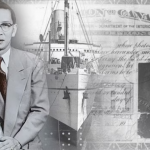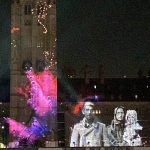(加拿大新闻商业网www.newnews.ca 4月28日)下面转发多伦多星报刊登张翎支持奥运文章:
译文: 张翎: 我敢斗胆说,这种媒体热是不客观和带有成见的(编者所加)
多伦多星报以往几周里,西藏/中国发生的事占据了报刊的头条标题。媒体把关注点几乎都放在了流亡藏人的示威上,却极少给予普通中国人发表意见的空间。
我敢斗胆说,这种媒体热是不客观和带有成见的。拉萨街头的骚乱所导致的店铺被烧毁和无辜居民(藏人和汉人在内)死亡,以及奥运火炬手接二连三地遭遇袭击,这些行为很难被称为是“和平示威活动” —— 而“和平示威活动”却是达赖喇嘛教义的宗旨。
西藏主权是一个长期争议的话题,这个回合的唯一不同是它牵扯进了一件即将来临的国际事件——奥林匹克运动会。西方世界对统治了西藏几个世纪的封建农奴制度了解甚少,或选择不去了解,而这种制度的残酷性已经被达赖喇嘛不设防的微笑和扣人心弦的演讲所抹平了。
我出生在中国。在1986年出国之前,我已经在那里生活了近三十年。由于我的全家都还在中国,我几乎每年都要回去探望他们,所以我可以说是中国过去几十年历史进程的目击者。
我成长在中国历史上最黑暗的时期。我祖父因为反毛言论被判处无期徒刑,而我父亲和他的三个兄弟不是被捕入狱,就是流放至边远的穷乡僻壤。我父亲抗争黑暗现实的方法,就是选择失忆——这在西医理论里可能被称为“早发性老年痴呆症。”我被剥夺了接受高等教育和寻找合适就业机会的权利。这也是为什么我会在国门刚向西方开敞时就选择离开的原因。
我到加拿大的二十二年里,完成了两个硕士学位,成了家,并在多伦多定居,现在是士嘉堡一家听力诊所的听力康复师。在这期间,我还开发了自己的创作激情。至今我已发表了三部长篇小说和三部中短篇小说集,第四部描写早期加拿大华工生活的长篇小说,已完成过半。我所有的小说都用中文书写,并在中国发表。
我对我的第二个祖国加拿大充满了感激之心,因为她使我的许多梦想成真。可是我也对加拿大媒体就北京奥运一事带偏见的非理性的看法越来越感到失望。
我一直和中国保持着密切的联系。每次回去,我都会发现令人惊讶的新变化。我看见人们的生活有了明显的改善,这不仅反映在物质层面上,也反映在他们表达自己感受和看法方面。我亲耳听见出租车司机和店员们公开批评政府的某些政策。而我自己的小说,其中有些涉及了中国近代史上不那么光明的一面,仍能得到公允的评价并数次获奖。
中国的人权纪录尽管不甚完美,可是却在进步之中。
全中国人民上至政府高官下至草根平民,都在尽心尽力地准备迎接奥运会。我把这种努力看成是中国人发自内心的希望被国际社会所接受的愿望,这也是西方诸国向中国施加影响督促其进一步改善人权的良机。
然而,西方诸国非但没有欢迎在中国所发生的这些积极变化,反而竞相猛烈地对中国展开抨击。其实这样做只会在中国走向民主化的进程中设置路障。改善中国的最有效方法是让中国参与,而不是孤立中国。
柏林墙倒塌至今已经接近二十年了,可是我仍然能感受到我们思维方式中的冷战心态。皮尔 .特鲁多,理查德 .尼克松和亨利 . 基辛格是七十年代通往中国的开路先锋,三十年之后难道我们还要重新封闭中国大门吗?希望不会。
让奥运精神闪光吧。奥运会应该把我们更加紧密地连结在一起,而不是使我们越发疏隔。在谴责中国的时候,让我们不要使用双重标准,别忘了我们自己国家沉重的原住民历史。
我们应该克制对中国的苛责,毕竟这个国家脱离毛的铁腕统治才三十年,而达赖喇嘛本人也曾把这个国家拥戴为西藏的唯一希望(当然,他现在合乎时宜地忘却了)。施以援手来营造一个积极求变的环境总比冷酷的拒绝更具有建设性。
原文发表在:
http://www.thestar.com/comment/article/418619
Apr 27, 2008 04:30 AM
Ling Zhang
Over the past few weeks, the Tibet/China issue has dominated the news headlines. While media attention has almost exclusively focused on Tibetan protests, very little space is given to the views of the average Chinese.
I beg to say that this media frenzy has been anything but objective or unbiased. Street riots in Lhasa leading to the burning of stores and deaths of innocent local residents – Chinese and Tibetans alike – and repeated assaults on the Olympic torch relay runners can hardly be termed “non-violent” protest, a core tenet of the Dalai Lama’s preaching.
The issue of Tibetan sovereignty has been long debated. The only difference this time around is that it is tangled up with an upcoming international event – the Olympic Games. The West knows very little, or chooses not to know, about the feudal slave system that dominated Tibet for centuries, the cruelty of which has been smoothed over by the Dalai Lama’s disarming smiles and engaging speeches.
I was born in China and spent the first 30 years of my life there before leaving for Canada in 1986. Since all of my extended family is still in China, I travel there almost every year to visit them, so I am a first-hand witness to what has happened in China over the last few decades.
I grew up in the darkest period of Chinese history. My grandfather was sentenced to life imprisonment because of his anti-Mao comments. My father and his three bothers were sent either to prison or into exile in remote and desolate areas. My father’s way to fight this bleak reality was not to remember, which in Western medicine may be called early-onset of Alzheimer’s.
I was denied every opportunity for higher education and a decent job. This was the major reason why I left China as soon as it began to open its doors to the West.
Since my arrival in Canada 22 years ago, I have completed two master’s degrees, got married and settled in Toronto, and now work in a Scarborough-based hearing clinic as an audiologist. I also have explored my passion for creative writing. To date I have written three novels and three collections of novellas and short stories, with a fourth novel on early Chinese settlers in Canada well underway. All of my books are written in Chinese and published in China.
While forever grateful to my adopted country that has made many of my dreams come true, I have been increasingly disappointed by our media’s biased and irrational opinions about the Beijing Olympics.
I have kept close contact with China. Every trip back home I find new and surprising changes. I have seen people’s lives improve drastically, not only in material terms, but also in the way they express their feelings and thoughts.
I have heard taxi drivers and shop assistants openly criticize government policies. I have seen my own books, some of which touch upon the not too pleasant parts of modern Chinese history, receive fair reviews and win literary awards.
China, notwithstanding its less than perfect human rights record, is making progress.
The entire nation, from high-ranking officials to grassroots workers, has been working extremely hard to get the country ready for the Olympics. I regard this as the Chinese nation’s heartfelt effort to be accepted into the international community. This is a great opportunity for Western nations to use their influence for further improvements in human rights.
Instead of embracing such positive changes, though, Western nations have tried to outdo each other in criticizing China. This will only act as a barrier on China’s road to democracy. The best way to change China is to engage it, not isolate it.
It has been almost 20 years since the fall of the Berlin Wall, but I still detect a Cold War mentality in our thinking. Pierre Trudeau, Richard Nixon and Henry Kissinger were forerunners in opening up China in the 1970s. Should we seal it off after some 30 years? I hope not.
Let the spirit of the Olympics shine. The Games should bring us closer together, not drive us farther apart. Let’s not use a double standard in condemning China, considering our own heavy baggage of aboriginal issues.
We should refrain from dishing out harsh judgments about a country that broke from Mao’s iron grip only three decades ago, a country the Dalai Lama himself once hailed as the only hope for Tibet (he conveniently forgot, of course). A helping hand to create a positive environment for change is much more constructive than a cold shoulder.
Ling Zhang is an audiologist and writer. She has lived in Canada since 1986 and became a citizen in 1995.




